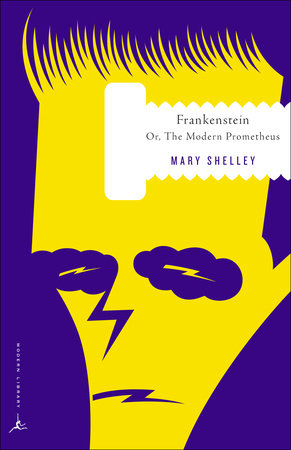Introduction by Wendy Steiner • Nominated as one of America’s best-loved novels by PBS’s The Great American ReadAt the age of eighteen, Mary Shelley, while staying in the Swiss Alps with her lover Percy Shelley, Lord Byron, and others, conceived the tale of Dr. Victor Frankenstein and the monster he brings to life. The resulting book,
Frankenstein; or, The Modern Prometheus, is a dark parable warning against the risks of scientific and creative endeavor, the corrupting influence of technology and progress, and the dangers of knowledge without understanding.
Frankenstein was an instant bestseller on publication in 1818 and has long been regarded as a masterpiece of suspense, a classic of nineteenth-century Romanticism and Gothic horror, and the prototype of the science fiction novel. Though it has spawned countless imitations and adaptations, it remains the most powerful story of its kind.
Mary Shelley's Frankenstein is one of the masterpieces of nineteenth-century Gothicism. While stay-ing in the Swiss Alps in 1816 with her lover Percy Shelley, Lord Byron, and others, Mary, then eighteen, began to concoct the story of Dr. Victor Frankenstein and the monster he brings to life by electricity. Written in a time of great personal tragedy, it is a subversive and morbid story warning against the dehumanization of art and the corrupting influence of science. Packed with allusions and literary references, it is also one of the best thrillers ever written. Frankenstein; Or, the Modern Prometheus was an instant bestseller on publication in 1818. The prototype of the science fiction novel, it has spawned countless imitations and adaptations but retains its original power.
This Modern Library edition includes a new Introduction by Wendy Steiner, the chair of the English department at the University of Pennsylvania and author of The Scandal of Pleasure.
Mary Shelley was born Mary Wollstonecraft Godwin in 1797 in London. She eloped to France with Shelley, whom she married in 1816. After Frankenstein, she wrote several novels, including Valperga and Falkner, and edited editions of the poetry of Shelley, who had died in 1822. Mary Shelley died in London in 1851.



